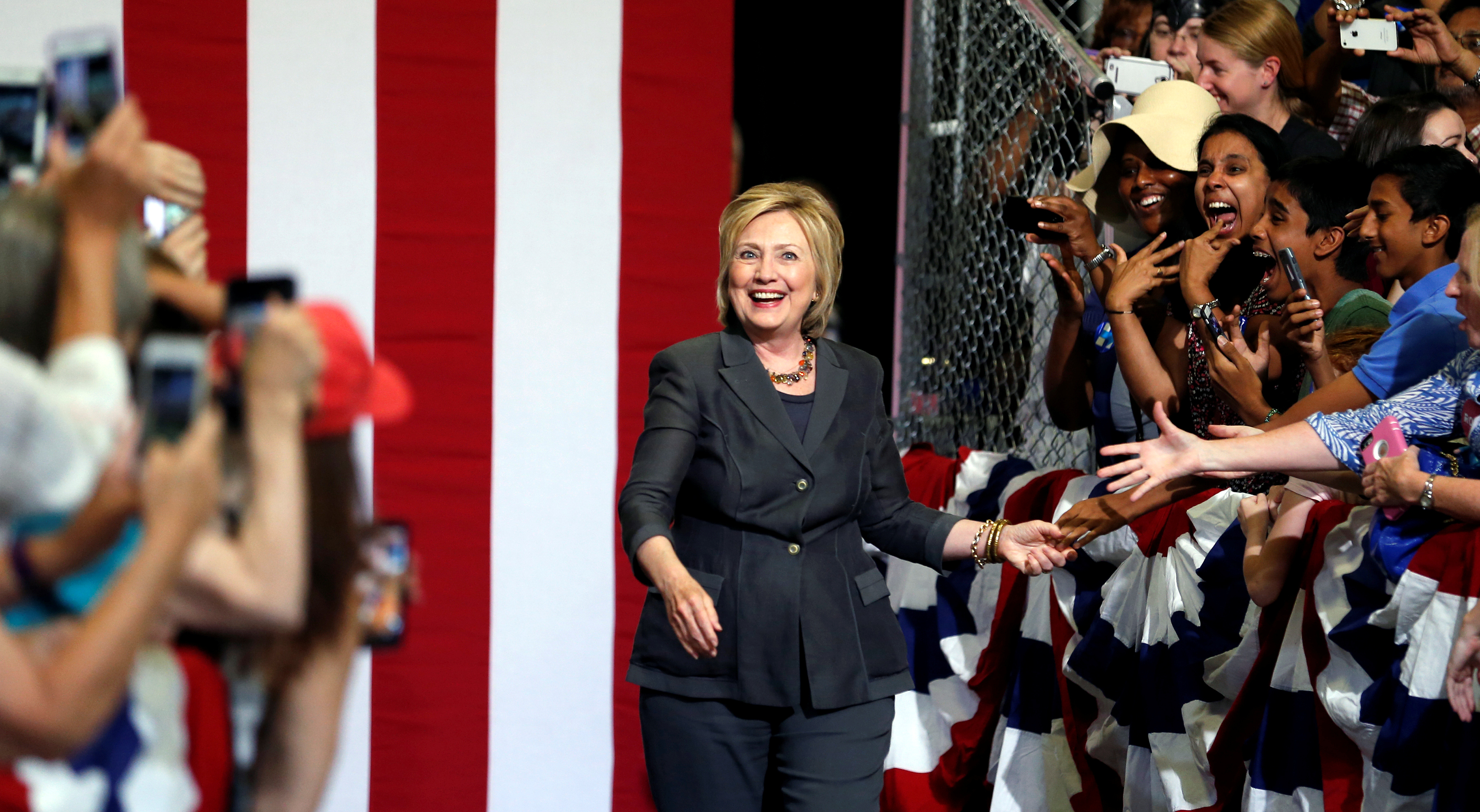Hillary Clinton's Southern strategy
Why the Democratic nominee must take the fight to the conservative heartland


A free daily email with the biggest news stories of the day – and the best features from TheWeek.com
You are now subscribed
Your newsletter sign-up was successful
Donald Trump's campaign is in free fall. His polling average across all swing states is a mere 37 percent. His ground operation is a mess. And now he's hired Stephen Bannon, the CEO of perhaps the most despicable and amoral major media outlet in the country, Breitbart, to run his campaign. The next few months are going to be extremely loud and obnoxious.
But it's good news for Hillary Clinton. She now has enough states in the bag to almost certainly win the election if it were held today — and she's getting astonishingly close in several states in the South, where the Democratic Party has largely ceased to exist outside of a few enclaves. Trump's meltdown gives her a rare opportunity to shift resources away from traditional swing states like Colorado or Virginia (where the latest polls give her a double-digit lead in both) and into real reach goals in the traditional heartland of American conservatism.
Let's take a look at the state of the electoral map. Polling averages show Clinton having locked up all the usual blue states, and opening a sizable lead in every traditional swing state except Ohio. But Trump's astonishing 65 percent unfavorable rating is creating new swing states. Georgia is a dead heat. Clinton is up by two in North Carolina. A recent poll puts her within 6 points in Texas. Polling is sparse in South Carolina, but the most recent one shows Clinton only down by two. In South Carolina.
The Week
Escape your echo chamber. Get the facts behind the news, plus analysis from multiple perspectives.

Sign up for The Week's Free Newsletters
From our morning news briefing to a weekly Good News Newsletter, get the best of The Week delivered directly to your inbox.
From our morning news briefing to a weekly Good News Newsletter, get the best of The Week delivered directly to your inbox.
On the other hand, Iowa is oddly close. Clinton can't take everywhere for granted, but that is only 6 electoral votes.
Clinton should press the attack in the South. This is a key strategy for two reasons.
First, if Democrats want to take back the House, she needs as big a victory as possible — and for Democrats to be elected down the whole ballot. With her hefty campaign chest, massive advantage in campaign staff, and commanding position in the polls, she can afford to allocate a lot of resources to states that would ordinarily be a waste of time. The goal should not be to cruise to an easy victory, but to pummel Trump beyond recognition. And even if she loses some of these states, turning out Democrats in record numbers could change the party's fortunes in the South.
Probably the key demographic to focus on is young voters, who overwhelmingly did not favor her candidacy in the primary. A Bloomberg poll found the number of voters aged 18-34 who definitely plan to vote has fallen by 14 points — but on the other hand, a recent head-to-head poll found Clinton up by 36 points among 18-29 year-olds. In a poll of the same age group that included Gary Johnson and Jill Stein, Trump came in fourth with a mere 9 percent. If Clinton is to take any of these states, young voters (and their more left-wing ideas) are where to start.
A free daily email with the biggest news stories of the day – and the best features from TheWeek.com
But more important is what can be done with a victory. Southern people need federal government help more than most. Most of the states that refused the Medicaid expansion in ObamaCare are in the South — where people are disproportionately poor and hence could qualify for coverage. Clinton winning these states could mean Democrats taking control of the state government, and giving health insurance to millions of people at a stroke — at virtually no cost to state governments either.
And, of course, a disproportionate fraction of those poor Southerners are black. More than half of African-Americans live in the South — and more are moving there over time. These are the most loyal Democrats in the country, and badly deserve restitution for years of racist abuse. If Democrats see the slightest chance to cut such people a break, they must seize it. (Of course, poor Southern whites — who are only somewhat less brutalized these days — would benefit as well.)
When he signed the Civil Rights Act of 1964, President Lyndon Johnson supposedly said, "We have lost the South for a generation." It's been a more than a generation, and Democrats have still all but abandoned the region. But Trump's omnishambles campaign might just give them the opening they need to start rebuilding the party and contesting elections where liberal policy is most desperately needed.
Ryan Cooper is a national correspondent at TheWeek.com. His work has appeared in the Washington Monthly, The New Republic, and the Washington Post.
